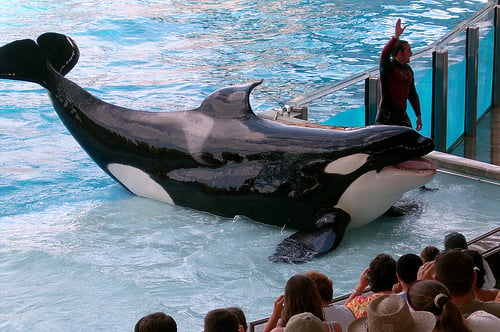Ex-SeaWorld Trainers Expose Orca Abuse
Two former trainers at SeaWorld have released a report that includes firsthand information about the stress that killer whales endure in captivity—stress that the ex-trainers feel led to the deaths of at least two SeaWorld employees.
Jeff Ventre (now a doctor) and John Jett (now a biology professor) worked at SeaWorld Orlando and knew trainer Dawn Brancheau, who was killed by a frustrated orca named Tilikum last February.
Working with The Orca Project, Drs. Ventre and Jett documented stressors such as confinement to small, shallow pools, lack of social interaction, whale-to-whale aggression, and inadequate medical care, and they drew a direct link between captive orcas’ abysmal living conditions and the whales’ desperate acts of aggression toward humans. According to Ventre and Jett’s calculations, captive orcas’ life spans are cut drastically short, down to a median age of just 9 years compared to the 30- to 50-year average life expectancy of orcas in the wild.
You can read the report in its entirety here. Help us stop the imprisonment of orcas by writing to SeaWorld and urging it to end these cruel shows.
Written by Michelle Sherrow


